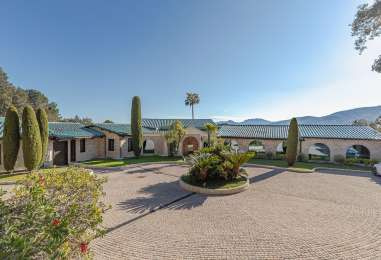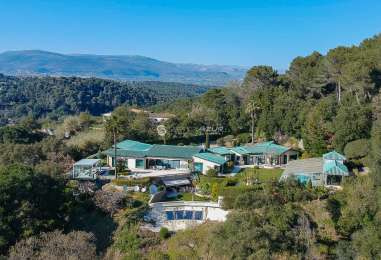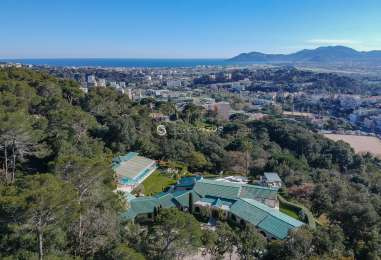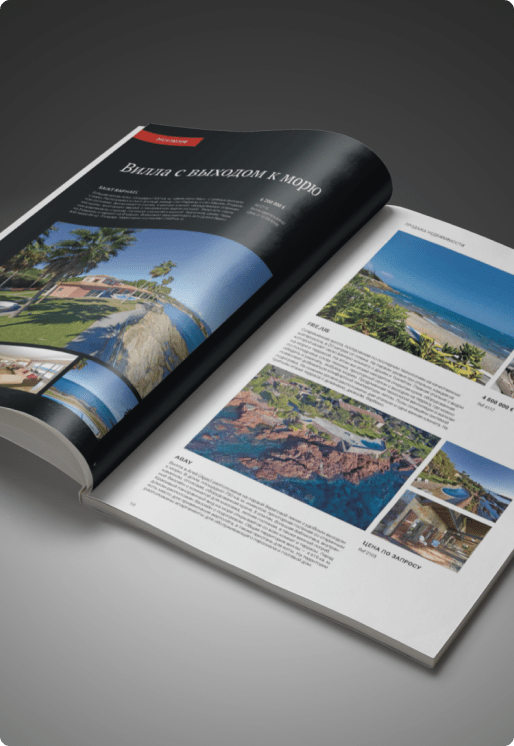
































- Home
- Real Estate
- Mougins Modern Villa with Expansive Garden Oasis and Privacy
Mougins Modern Villa with Expansive Garden Oasis and Privacy
In the serene residential environs of Mougins, this modern villa stands as a haven of tranquility and elegance, surrounded by an 8500 sqm meticulously manicured garden. The property features a generous 625 sqm of living space, designed with a contemporary flair that maximizes both light and indoor-outdoor flow. The main house includes six bedrooms, each complete with its own bathroom, and reception rooms that open directly onto the lush garden and a heated swimming pool. The estate also boasts a pool house, an outdoor kitchen perfect for summer dining, three additional independent bedrooms, a sauna, a wine cellar, and extensive garage space. This secluded retreat combines the luxury of modern amenities with the peace of a quiet, gated community, making it an ideal setting for both relaxation and entertainment.

























































Step-by-step guide to the homebuying process :
- Select properties and ask to organise viewing
- Visit selected properties and choose a home to buy
- Have the house inspected and ask for energy performance rating
- Make an offer. Present it to the seller and reach agreement on the price.
- Sign a promise deed – Compromis de vente
- Make a down payment of 5-10% of the sale price
- Consider your financial options, ask for mortgage
- Wait for the notary to check the transaction cleanliness
- Pay a 100 % of the amount
- Sign a sale deed and get the keys to your new home
- Get legal documents, registered in the French Land Registry, from the notary
- Register utilities and insurance policies of your new home in your name
These reports inform the buyer about the state of the property but do not constitute a guarantee of its perfect condition.
For a detailed overview, see our guide: Property Sales in France: Mandatory Technical Inspections
56 bis, av de la Lanterne
06200 Nice, France
+33 4 93 29 84 25
9:00 – 18:00
Nice, France (GMT +2)








